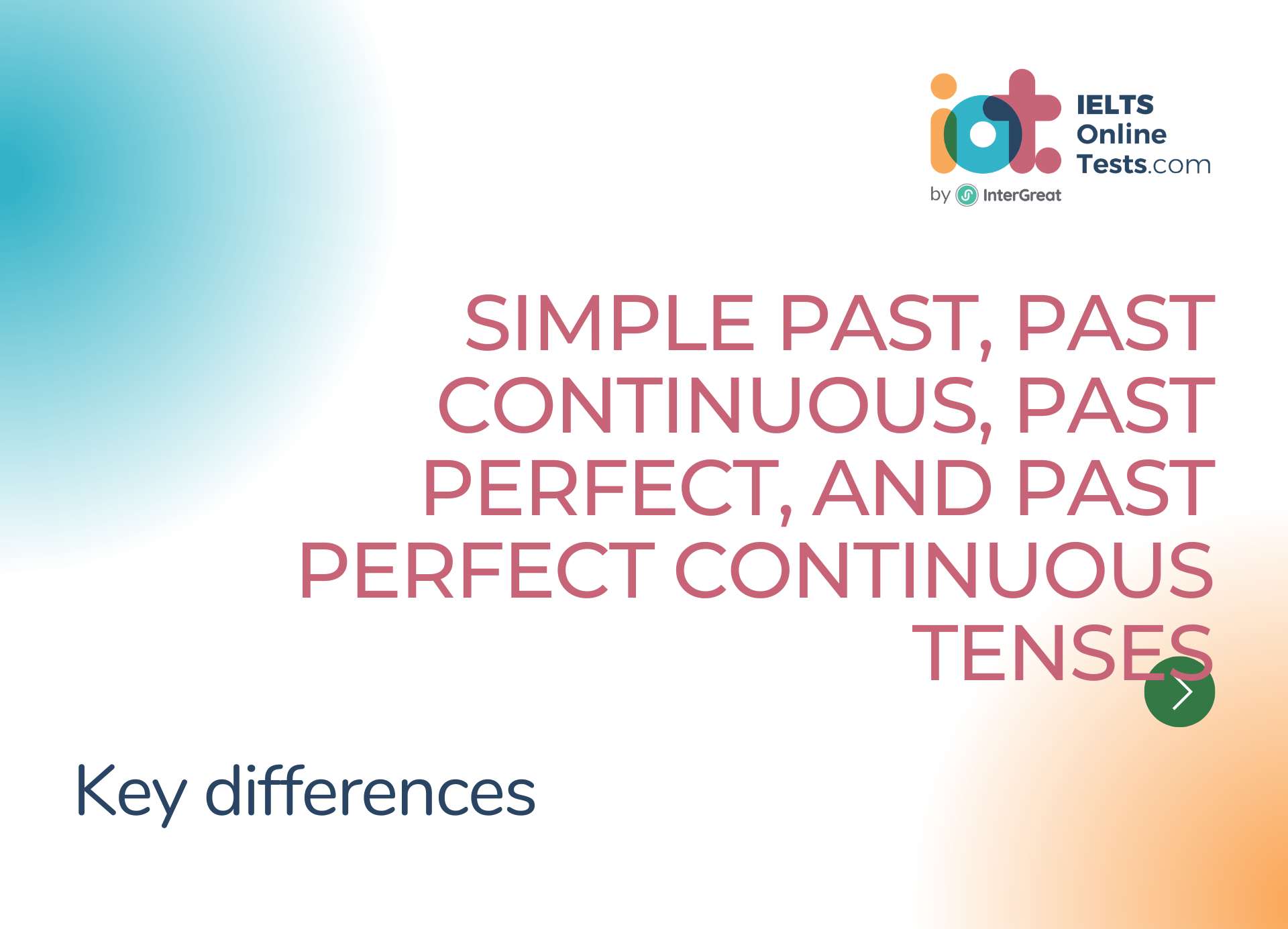
Key differences between the simple past, past continuous, past perfect, and past perfect continuous tenses
Here's a side-by-side comparison of the simple past, past continuous, past perfect, and past perfect continuous tenses:
Simple Past Tense:
- Describes completed actions or events in the past.
- Indicates a specific point in time when the action occurred.
- Uses the past tense form of the verb.
- Example:
- "I finished my work yesterday."
Past Continuous Tense:
- Describes ongoing actions or events in the past.
- Indicates an action that was in progress at a specific time in the past.
- Uses the past tense form of "be" (was/were) + present participle (-ing form) of the main verb.
- Example:
- "She was studying when I called her."
Past Perfect Tense:
- Describes an action that was completed before another past action or a specific point in the past.
- Indicates the earlier action or event.
- Uses "had" + past participle form of the main verb.
- Example:
- "They had already left when I arrived."
Past Perfect Continuous Tense:
- Describes ongoing actions that were in progress before another past action or a specific point in the past.
- Indicates the continuous duration leading up to that point.
- Uses "had been" + present participle (-ing form) of the main verb.
- Example:
- "He had been working all day before he took a break."
KEY DIFFERENCES:
- Completion vs. Continuity:
- Simple Past: Describes completed actions in the past.
- Past Continuous: Describes ongoing actions in the past.
- Past Perfect: Describes completed actions before another past action.
- Past Perfect Continuous: Describes ongoing actions leading up to another past action.
- Time Reference:
- Simple Past: Refers to a specific point in the past.
- Past Continuous: Refers to a specific time in the past when an action was in progress.
- Past Perfect: Indicates an action completed before another past action.
- Past Perfect Continuous: Indicates an ongoing action leading up to another past action.
- Verb Structure:
- Simple Past: Uses the past tense form of the verb.
- Past Continuous: Uses "was/were" + present participle (-ing form) of the main verb.
- Past Perfect: Uses "had" + past participle form of the main verb.
- Past Perfect Continuous: Uses "had been" + present participle (-ing form) of the main verb.
- Usage:
- Simple Past: Used to describe completed actions or events in the past.
- Past Continuous: Used to describe ongoing actions or events in the past.
- Past Perfect: Used to describe an action completed before another past action or a specific point in the past.
- Past Perfect Continuous: Used to describe ongoing actions leading up to another past action or point in the past.
Choosing the appropriate tense depends on the intended meaning, the sequence of events, and the timeframe being referred to in the past.




